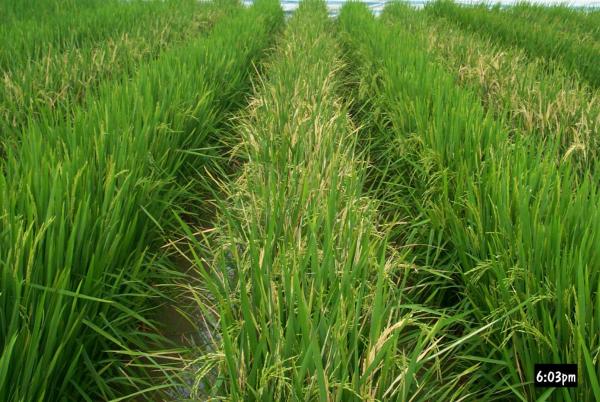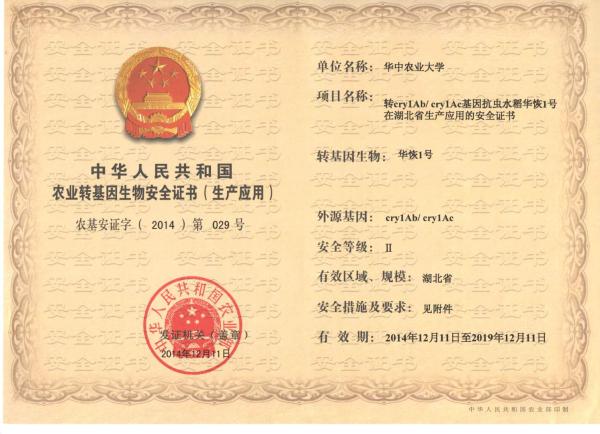


Huahui No.1, a new type of genetically engineered rice developed by Chinese scholars, has received approval from the U.S. Food & Drug Administration (FDA) and is expected to enter the American food market soon.
In an open letter released by the FDA on its official website, Huahui No.1 is described as a product that complies with the legal and regulatory requirements that fall within FDA’s jurisdiction. The letter also noted that human and animal foods from Huahui No.1 rice grain are not materially different in composition, safety, and other relevant parameters from rice-derived human and animal food currently on the market.
Developed by China’s Huazhong Agricultural University (HAU), Huahui No.1 contains a copy of the synthetic DNA sequence with two genes: cry1Ab and cry1Ac. These genes encode for the respective Bt toxins which, being lethal to Lepidoptera, make the plant resist to this group of insects.
According to the FDA, HAU should obtain all appropriate clearances, including those from the United States Environmental Protection Agency (EPA) and the United States Department of Agriculture (USDA), before marketing human or animal food derived from Huahui No.1 rice.
As of press time, HAU has already obtained a letter from the EPA stating that the Cry1Ab/Cry1Ac protein in Huahui No. 1 rice falls under the tolerance exemption for Cry1Ac in 40 CFR 174.510.
Huahui No.1 must be approved by the USDA if it wants to be planted on U.S. soil. But with approvals from both the EPA and the FDA, the genetically engineered rice has already gained access to the U.S. market and can be sold to American customers directly, according to Science and Technology Daily.

Created by Chinese scientists in 1999, Huahui No.1 was awarded a safety certification from China’s Ministry of Agriculture in 2009, and retained the certification upon reapplication when it expired in 2014.
 Fire brigade in Shanghai holds group wedding
Fire brigade in Shanghai holds group wedding Tourists enjoy ice sculptures in Datan Town, north China
Tourists enjoy ice sculptures in Datan Town, north China Sunset scenery of Dayan Pagoda in Xi'an
Sunset scenery of Dayan Pagoda in Xi'an Tourists have fun at scenic spot in Nanlong Town, NW China
Tourists have fun at scenic spot in Nanlong Town, NW China Harbin attracts tourists by making best use of ice in winter
Harbin attracts tourists by making best use of ice in winter In pics: FIS Alpine Ski Women's World Cup Slalom
In pics: FIS Alpine Ski Women's World Cup Slalom Black-necked cranes rest at reservoir in Lhunzhub County, Lhasa
Black-necked cranes rest at reservoir in Lhunzhub County, Lhasa China's FAST telescope will be available to foreign scientists in April
China's FAST telescope will be available to foreign scientists in April "She power" plays indispensable role in poverty alleviation
"She power" plays indispensable role in poverty alleviation Top 10 world news events of People's Daily in 2020
Top 10 world news events of People's Daily in 2020 Top 10 China news events of People's Daily in 2020
Top 10 China news events of People's Daily in 2020 Top 10 media buzzwords of 2020
Top 10 media buzzwords of 2020 Year-ender:10 major tourism stories of 2020
Year-ender:10 major tourism stories of 2020 No interference in Venezuelan issues
No interference in Venezuelan issues
 Biz prepares for trade spat
Biz prepares for trade spat
 Broadcasting Continent
Broadcasting Continent Australia wins Chinese CEOs as US loses
Australia wins Chinese CEOs as US loses